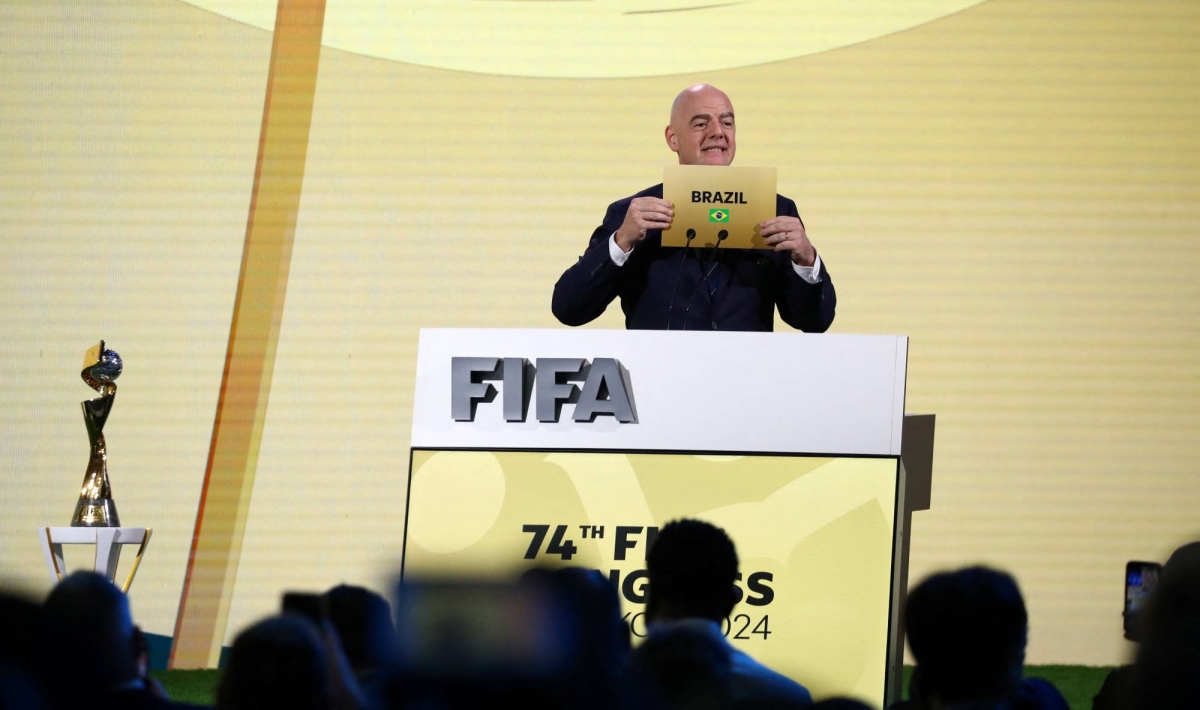
Japan's ambitions to host the 2031 Women's World Cup were met with a significant setback when FIFA announced that the bidding for the tournament would be restricted to regions in North America and Africa. This decision came as a blow to the Japan Football Association (JFA), which viewed the opportunity to host the world’s most prestigious women’s football tournament as a pivotal moment to enhance the sport’s profile within the country. Despite this disappointment, Japan remains steadfast in its commitment to growing women's football domestically and on the international stage.
In the wake of FIFA's decision, JFA president Tsuneyasu Miyamoto expressed his discontent but reiterated Japan’s resolve to continue developing the women's game. "For us, who were aiming to host the 2031 Women's World Cup, this is very disappointing news," said Miyamoto. Nevertheless, he emphasized that this decision does not alter Japan’s overarching goal to boost participation and elevate the level of women's football in the nation.

The Strategic Importance of Hosting
Japan’s desire to host the tournament was not merely about the prestige that comes with such an honor. It was also a strategic move to inspire young girls and women to participate in football, potentially increasing the sport's grassroots popularity. Hosting the Women’s World Cup could have provided a platform for showcasing Japan’s rich football culture and infrastructure capabilities, similar to how the 2002 FIFA World Cup, which Japan co-hosted with South Korea, significantly boosted football's popularity across Asia.
Japan's women’s national team, affectionately known as the Nadeshiko, has been a beacon of success in international football. They captured the world’s attention by winning the 2011 Women's World Cup and finishing as runners-up in 2015. However, recent performances have seen them fall short of their own high standards, not advancing past the quarter-finals in the last two editions of the tournament.
A Path Forward: Development and Investment
Despite the setback, Japan plans to push forward with its efforts to cultivate talent and improve the competitive edge of its women's national team. The JFA has outlined several initiatives aimed at developing young talent, providing better facilities, and fostering a more competitive domestic league. These efforts are crucial as Japan seeks to close the gap with powerhouses in Europe and North America.
One of the key strategies involves investing in youth development programs and academies. By nurturing talent from a young age, Japan hopes to build a pipeline of skilled players who can compete at the highest levels. Additionally, the JFA is working on enhancing coaching standards and providing opportunities for players to gain international exposure through friendly matches and overseas training camps.
Japan’s domestic women’s league, the WE League, launched in 2021, plays a vital role in this developmental strategy. The league has been instrumental in providing a professional platform for female footballers, attracting international talent, and increasing the visibility of women’s football in Japan. Continued investment in the WE League is expected to raise the level of competition and provide a solid foundation for the national team.
Looking Ahead: Future Bids and International Collaboration
While Japan's hopes for 2031 have been dashed, the nation is not ruling out future bids for hosting international tournaments. The JFA remains open to exploring opportunities to host other FIFA events as a means of promoting the sport and showcasing Japan’s organizational expertise.
Moreover, Japan is keen on collaborating with other nations to strengthen its bids for future tournaments. This could involve forming alliances with neighboring countries to co-host events or partnering with football associations in different regions to share knowledge and best practices.
International collaboration can also extend to friendly matches and joint training programs with other national teams, fostering goodwill and providing valuable experience for players and coaches alike.
The Global Context: North America and Africa
FIFA’s decision to limit the 2031 Women's World Cup bids to North America and Africa reflects its strategic vision to expand the tournament's reach and foster football development in new territories. A North American bid, likely involving the United States, would promise commercial success with packed stadiums and high viewer ratings. Meanwhile, granting hosting rights to an African nation would align with FIFA's goals of promoting football in developing regions, offering a unique cultural experience and potentially inspiring a new generation of players on the continent.
As Japan looks to the future, it remains committed to its mission of enhancing women's football domestically and internationally. The resolve demonstrated by the JFA in the wake of this setback underscores the country's dedication to the beautiful game and its aspiration to remain a key player on the world stage. While the 2031 tournament may not be coming to Japan, the nation’s ambitions in football are far from over, and its journey towards hosting a future World Cup continues.